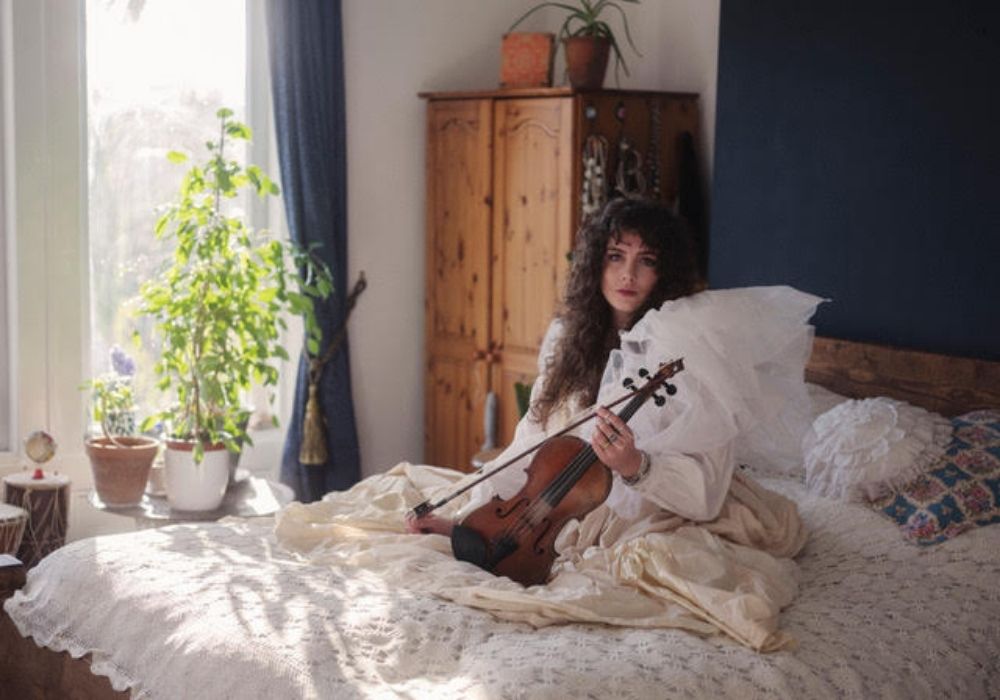Award category:
I am a singer, multi-instrumentalist, activist and composer based in Newcastle Upon Tyne. I grew up in North Yorkshire, before studying Fashion at Northumbria University. Meanwhile, I began fronting folk-rock band Holy Moly & The Crackers, touring UK/Europe extensively. I was invited to become Artist in Residence as a solo artist at The Glasshouse in 2020 and have worked with world-renowned producer John Parish ever since. I am ambassador for The Featured Artist Coalition, Attitude Is Everything and RAMPD(US). I performed and spoke on a panel at SXSW, Texas with fellow disabled artists Eliza Hull and Lachi, from Australia and USA respectively. There I heard reinvigorating perspectives on community, inclusion, disability-culture and accessibility. Eliza and I then toured the UK promoting accessible venues through performance and Q&A sessions; running workshops for young disabled artists. As a member of the Newcastle music scene for over a decade, I mentor emerging talent whilst consulting on improving accessibility in regional music venues and organisations. I regularly speak on music industry panels, was part of a parliamentary APPG on inclusivity in the arts, I’ve performed and spoken in the House Of Lords as one of the Board of Directors at The Glasshouse, gave a guest lecture at Kings College London and have written articles for the Guardian, Independent, NME and been featured on the BBC World Service. I have received recent accolades from PRS Women Make Music, had airplay and interviews on BBC Radio 1, 6Music, as well as performances at Glastonbury, Great Escape and Latitude festivals. My music has been used frequently on radio, TV, theatre, film and most notably in the BBC drama ‘Then Barbara Met Alan’. The BBC invited me to record a live session at Abbey Road studios with recordings being used in a compilation album for Children In Need. Music gives me my power – it’s such an integral part of our cultural fabric and young artists need to look at a stage and believe that could be them. Our voices must be lifted, celebrated and promoted on the biggest platforms we have, as greater representation will create lasting change.

Disability Power 100 profile information is self-submitted by the profile subject. Shaw Trust understands and respects that disability and impairment descriptors and language use varies from person to person. Shaw Trust assumes no responsibility or liability for any errors or discrepancies in the content of this, or any other, profile page.